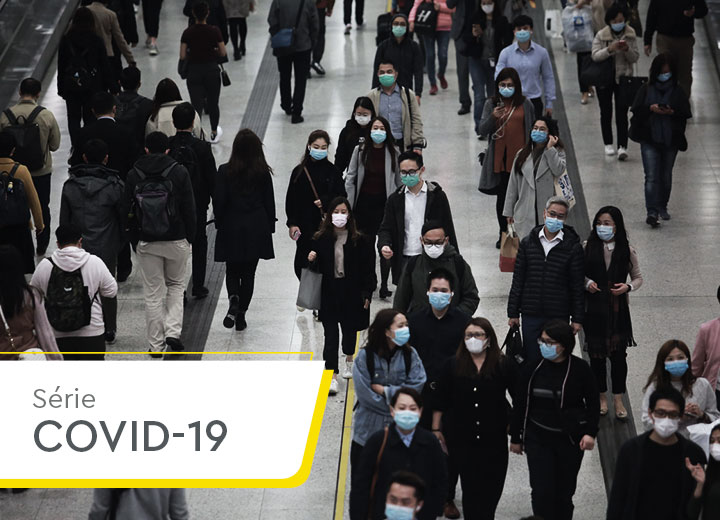
Companies may make FGTS payments for March, April, and May 2020 from July onwards.

Cases of covid-19 will only be deemed occupational when the causal link between the disease and the work performed can be proved.

Employees will be able to offset the interruption of activities with overtime work of up to two hours per day for 18 months.

Companies may negotiate profit sharing programs directly with employees only if labor unions, summoned to join the discussions, fail to respond within seven days.

The legal precautions that companies should take to comply with employee isolation measures during the covid-19 pandemic.

As of the 16th day, employees will be considered to be on sick leave covered by the INSS.

Prejudices and systematic practices of discrimination against people with disabilities in the work environment have motivated international bodies such as the International Labour Organization (ILO) to have this problem covered in their conventions and recommendations.

The deliberations and voting on the report of Executive Order (MP) No. 905/2019, scheduled for Tuesday, March 3, have motivated various discussions on the subject, especially in public hearings scheduled for this purpose.

It is an increasingly common trend at companies to create areas of innovation to stimulate the creativity of employees and reinvent the business model, in relation to both internal processes and flows and products and services.

Discussions related to working hours and control thereof are extremely relevant for companies in Brazil, due to the large number of lawsuits in the Labor Courts involving the payment of overtime, a problem historically related to two factors:

Executive Order No. 905/19 (MP 905), which instituted the Green and Yellow Employment Contract, implemented various changes to unemployment insurance and accident assistance.

The government sent to the National Congress, on November 26th, Bill No. 6,159/19, which aims to change the rules for filling quotas reserved for people with disabilities, established by Law No. 8,213/91.

The Labor Reform (Law No. 13,467/17) amended article 899, paragraph 11, of the Consolidated Labor Laws (CLT) to, among other things, enable the use of a judicial surety bond or bank surety to substitute for an appeal deposit, an alternative that had already been accepted by the Labor Courts to guarantee enforcement of judgment.

The publication of Executive Order No. 905/2019 brought about various important impacts for employers from a practical point of view. One of the main changes is permanent authorization for work on Sundays and holidays for all categories of workers, ending the obligation for collective bargaining or administrative requests to the competent authorities for this purpose.

Companies no longer need to be inspected by the competent labor authority in order to begin their operations and/or undertake structural changes. Executive Order No. 905/19 (MP 905), which instituted the Green and Yellow Employment Contract, repealed article 160 the Consolidated Labor Laws (CLT), which contained rules relating to the inspection of companies before they may start operations.